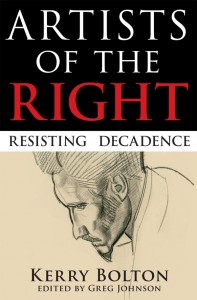What I Learned Running For Office
Posted By Nicholas R. Jeelvy On In North American New Right | Comments Disabled3,603 words 
For the last two weeks, my time has been primarily occupied by an unsuccessful bid to become a member of the Assembly of the Republic of Macedonia. Together with my fellow members of the national populist Boycott Movement, [1] we endeavored to get on the ballot for the upcoming election in April as an independent candidate listed under the proportional representation model. We failed to do so. In this article, I will recount what I learned from my time on the campaign.
Without getting too bogged down in the intricacies of Macedonian election law, let me briefly explain the requirements. In order to secure ballot access, one needs to gather at least 1000 signatures from voters in each electoral district where one intends to run an independent candidate list. Each candidate list includes 20 candidates. Macedonia has 6 electoral districts, for a total of 120 Assemblymen. We ran candidate lists in 3 of the 6 electoral districts. The voter signatures had to be deposited by voters in person in the regional offices of the state election commission. We failed to garner enough popular support.
My experience with the campaign provided me with valuable insights into the question which has dogged me for a very long time, which is “who are we?” And by “we,” I mean the dissident Right — either narrowly those who are, as the Z Man of the Z blog puts it, on this side of the great divide, or broadly, anyone who dissents from the mainstream right orthodoxy. I will attempt to further understanding of what are our strengths and weaknesses are, what is our general behavioral profile is, and how this information can be utilized and leveraged into political success.
Art-Right
 The first thing that caught my eye was the position of our candidate lists. We were running in the 1st, 2nd and 5th electoral districts. The 1st and 2nd electoral districts are dominated by the capital of Skopje and its sprawling metropolitan area. The 5th district is the home of Bitola, Macedonia’s second-largest city, as well the historic and cultural center of Ohrid, which holds the distinction of being the only Macedonian city featured in Civilization V (6th city founded by the Byzantine civilization). This told me that we are, our profession of national populist tenets notwithstanding, a primarily urban and intellectual movement. And indeed, the candidate list leaders’ professions reflected this, including a journalist, an anthropologist, and a software entrepreneur. Movement meetings were refreshingly intellectual events, though often descending into discussion of history, art, philosophy, and religion which served no practical purpose. Artists of all stripes were not only numerically present but disproportionately active and passionate. Entrepreneurs and small businessmen were also present, and to a lesser extent, skilled professionals independent of intellectual fashions, such as software engineers. I found myself in an unusually privileged position as the only lawyer officially affiliated with the movement, though other, more prominent jurists were affiliated with us in an unofficial capacity or were secretly communicating with movement leaders.
The first thing that caught my eye was the position of our candidate lists. We were running in the 1st, 2nd and 5th electoral districts. The 1st and 2nd electoral districts are dominated by the capital of Skopje and its sprawling metropolitan area. The 5th district is the home of Bitola, Macedonia’s second-largest city, as well the historic and cultural center of Ohrid, which holds the distinction of being the only Macedonian city featured in Civilization V (6th city founded by the Byzantine civilization). This told me that we are, our profession of national populist tenets notwithstanding, a primarily urban and intellectual movement. And indeed, the candidate list leaders’ professions reflected this, including a journalist, an anthropologist, and a software entrepreneur. Movement meetings were refreshingly intellectual events, though often descending into discussion of history, art, philosophy, and religion which served no practical purpose. Artists of all stripes were not only numerically present but disproportionately active and passionate. Entrepreneurs and small businessmen were also present, and to a lesser extent, skilled professionals independent of intellectual fashions, such as software engineers. I found myself in an unusually privileged position as the only lawyer officially affiliated with the movement, though other, more prominent jurists were affiliated with us in an unofficial capacity or were secretly communicating with movement leaders.
This is to be expected of a movement that bucks the trends, and especially goes against the popular religion of the day. After all, people who are used to critical thinking, ignoring the opinions of the powerful, and with a measure of independence both financial and intellectual, will form the core of any dissident movement. Hence the decisively urbane character of our movement and the low turnout in rural and suburban areas. As I have predicted in my writings for Counter-Currents, the dissident Right is a movement of disaffected members of the elite who are turning away from the present state religion of the West, whereas the overrepresentation of artists indicates that we are indeed the cutting edge, most inspirational, and perhaps, most importantly, most effective at perpetuating beauty of all the political movements on offer. There is much to be said of artists as antennae of the race — we feel depredations against our people more strongly than other men.

You can buy Kerry Bolton’s Artists of the Right here [2].
The skills, intellect, and connections of such people can be leveraged to achieve various objectives. From the beginning, our movement was the target of relentless attacks from the hostile media, particularly by ostensibly right-wing gatekeepers, but also the recipient of much attention from patriots and nationalists. I suspect this is at least in part due to our superbly-designed logo, created by an accomplished visual artist. Humans are visual creatures and will often respond better to symbols and images than to text or messaging. The boldly colored wolf was our standard for this battle and it served us well.
The presence of skilled software engineers and entrepreneurs allowed our movement to dominate cyberspace, not only by having a well-designed and interactive web page, but by innovations in cyber-activism. One of the issues that animated our movement is the illegal, unconstitutional and anti-Macedonian change of our country’s name. One of our earliest successes was the creation and proliferation of a Google Chrome extension which automatically highlights and/or removes the accursed “north” adjective. This extension exploded in use and brought awareness of our movement long before anyone else was in the mindset of starting to organize for election.
As a final note, I will add that I myself contributed to the movement by leveraging my experience as a penniless hipster director in directing an advertisement. I was pleasantly surprised to learn that the movement, while numerically small, included a total of 3 skilled and experienced video editors, myself included.
A different kind of success
Yes, yes, Nick. You were a very merry band of artistic and talented gentlemen, and you made a snazzy logo and a clever video ad [3], and a Chrome extension, but you did not secure ballot access. Where’s the success?
And I say to you: there’s your success right there. We assembled a merry band of artistic and talented gentlemen who then proceeded to make a snazzy logo and a clever video ad and a Chrome extension, among other things. What’s interesting to me is that the team which created the video ad had never before worked together on any project. It began as an insult to our movement by a cuck-right gatekeeper, that we’re willing to kidnap people from the streets in order sign for our ballot access, and then somebody suggested we film ourselves staging a kidnapping. A couple of phone calls later, a crew assembled in a nearby park, utilized a tall (6’5”) guy as a cameraman, filming in broad daylight (old no-budget trick, the sun provides free lighting) with a phone camera. Later, a crack crew of voiceover artists (no boom mikes, another no-budget limitation turned advantage) and editors turned the material into a clever, signal-boosting advertisement. But at no point was the whole operation anything more than 4 guys (and a girl) dicking around with a phone camera.
What was achieved was the creation of infrastructure, which regular readers of Counter-Currents will know [4] is essential to lasting political success. I need now only snap my fingers and a filming crew will materialize where before there were no personnel available to do so. The interpersonal links established and the reputations developed are the meat of political infrastructure. Other successes were also achieved in gaining audiences and deepening cooperation between disparate actors within the movement, as well as unofficially affiliated movement allies.
The high quality of media produced also got us noticed by the cuck and leftoid media. I consider it a point of pride that a left-wing political humor TV show saw it fit to run a hit piece on our movement and me [5] and use clips from the video ad and my Macedonian-language podcast to smear me. I don’t believe in bad publicity. In fact, I leaned into the publicity, as it was smears that put me and the cause on TV to begin with. This has brought me the unexpected boon of being recognized in the streets by normal people, who now feel free to ask me questions about our struggle and our cause. Whereas before I had to chase people down and tell them about my ideology, now I get cornered on my weekly hikes by enthusiastic voters.
Generally, I think that dissident movements grow by attracting interesting people who do cool things, which then attract interesting people, who do cool things and so on and so forth. So, don’t be afraid to do cool and creative stuff. This campaign had me relive my glory days as a penniless hipster filmmaker. It also put me back in the mindset of a teenage punk rocker poking fun at the establishment and reveling in the creative chaos of dissent. This is very important. As Saul Alinsky points out in Rules for Radicals, it is important that activists have fun while advocating this and that. Perhaps the greatest success we had as a movement during the campaign is that everyone had an immense amount of fun and this means that we will enthusiastically do it again in the future. Personally, I can hardly wait for the next election and might even start poking some beehives of my own accord before it rolls around.
Decentralization affords flexibility
From the beginning, we had no central authority. This is why we refused to organize as a political party. Political parties are inherently rigid and centralized. We’d avail ourselves of the flexibility of a decentralized movement by allowing each member freedom to act and develop novel solutions to problems as they arise. Whatever coordination existed was there to prevent members from bumping into each other and to keep everyone in their lane.
Our great successes came from people showing initiative, starting work towards the completion of a goal, and then the rest of the movement rushing to their aid, insofar as that aid proved necessary. This may be the best, if not the only, way of running a dissident Right movement, given the unique limitations of our diverse neurotypes prohibit functioning in the traditional command-and-control structure of a political party. We’re not the type of people who do as they’re told — if we were, we wouldn’t be dissidents. I will add, however, that it is important to have genuine belief in the cause — only for such conceptual enormities are the otherwise indomitable men of the dissident Right willing to sacrifice their individuality. Absent the cause, absent a unifying purpose, we tend to squabble and run power plays. What I found interesting is that a lot of the men in the movement had a military background, but had served in mountaineer or light infantry divisions — positions which require a good deal of creative and independent thought, and a decision-making capability at the squad leader level, often in the absence of higher-level command. The so-called Jaeger mindset trickled down and out into even those of us without a military background.
An unexpected benefit of decentralization came about before there was even talk of election. As a national populist movement, the Boycott Movement is effectively a big tent coalition that includes patriots, civic nationalists, libertarians, ethnic nationalists and even disaffected patriotic leftists. Internal movement debates were vociferous and loud, culminating in a 4 hour (!) YouTube debate between myself and one of my compatriots who professes a conservative and civic nationalist worldview. I’ve heard it before that debates don’t accomplish much and in a sense, this is true. I did not become a civic nationalist in the aftermath, neither did my interlocutor suddenly embrace ethnic nationalism. But, publishing this debate demonstrated to outside viewers that our movement was at the cutting edge of intellectual and political developments. It raised my own profile immensely, both within the movement and with the people. And even though the response is near-unanimous that I “steamrolled” my interlocutor, he was praised for his intellectual honesty and willingness to engage in debate where others have avoided it. By devoting the last 10 minutes to amicably agreeing to disagree, we demonstrated that we have civility and the sense of purpose to leave aside differences in order to pursue a common goal. This demonstrated integrity, which as we know, is in short supply among Western politicians.
Mind your mental state
As the campaign wore on and my stress levels were spiking, I found myself bargaining with an urge to give up. It is bad, it’s gonna get worse and you will fail ingloriously. It’s ok, you did your best, but now it’s time to give up, gather the neighborhood dogs and pet them for the last time, write your last haiku and go to sleep under the old tree, preferably never to wake up. Well, maybe nothing so dramatic, but yes, now would be a good time to curl into a ball and not get out of bed in the morning. As someone of dual melancholic/sanguine temperament, I found myself looking for justifications to give up and give in to depression. During a particularly bad day, compounded by rain and forebodingly dark clouds, it hit me that my old friend — the black dog of depression — is at the very least the devil I know, as opposed to this undiscovered country of stress and anxiety.
But I soldiered on. What really kept the black dog at bay was a conversation with a voter, a 70-something-year-old man who regaled me with tales of his grandfather’s adventures during the Russian civil war. As I drove him to the polling station, I understood that he suffered from that well-known devil of old age: loneliness. This is useful to know not just in politics, but in other endeavors as well — seniors and elders are lonely people and they crave human interaction. Merely listening to what they have to say is sometimes enough for them, and they are a repository of non-replicable wisdom — no book contains the wisdom you can glean from a conversation with a senior. And for all their faults, the oldsters remember a time when the men of the West stood with pride. To see a young man fight for his people with honor energizes and electrifies them. Avail yourself of these elders.
This brings us to a big reason why you must keep your emotions in check.
Group chats spread everything
Novel communication technologies allow methods of coordination and cooperation unavailable to earlier political movements. Group chats also have the vital function of serving as a sorting ground for the movements’ internal hierarchy, especially in such movements that do not have a formal hierarchy. Disputes get resolved there, vital information shared, attacks and defense are coordinated, and meetups are scheduled. They are also places where the community can engage in two minutes hate, or better yet, collectively mock a political enemy, building essential asabiyyah.
But a poorly understood weakness of the group chat is that a single member can bring about a cascade of emotion among all involved. This is good when the times are good; we want contagious enthusiasm, but when times are bad, this represents an opportunity for negativity to rapidly spread and infect the entire movement. Doom and gloom spread even faster than enthusiasm, especially considering the psychological comfort of depression discussed earlier. Personally, I never divulged my emotions to the group chats. Part of it is my own cagey nature. Part of it is Balkan culture, which stipulates that male negative emotions are to be expressed communally, indeterminately, and with generous helpings of alcohol in one of our many taverns. In a phenomenon that possibly merits its own articles, Balkan men experience communal sadness when they sing sad songs with their friends, each silently inhabiting a private universe of lost love and unspoken passion. And indeed, for the most part, the movement keeps this tradition, which was to be expected given that it is a movement of traditional men. But nevertheless, some of the negativity wormed its way into the group chats and then spread like a virus among the membership. And those who opened the gates were women.
The Woman Question
When I hear people bellyaching about “whaman in the movement,” I roll my eyes. Women are, for the most part, a liability to a right-wing political movement. Our Boycott Movement, predicated as it was on decentralized action, the jaeger mindset, and free-thinking men engaging in cool activities, fundamentally alienated female members who prefer communal decision-making, decision-making by committee, and full accounting. Mostly, they want to “be involved,” even though they may not be actively contributing.
Even if a movement is more centralized and hierarchical, women still cannot function within it, because a centralized hierarchical movement requires at times unquestioning obedience to the center, even if one does not completely understand the action one undertakes on its behalf. To men, even indomitable men, such hierarchies come naturally. I mentioned that many in our movement were military veterans. Even those of us that weren’t had a background in team sports and as such knew how to subsume our egos to the cause and function as a team, without demanding that whoever was issuing the directions give us full accounting. The women couldn’t hack it. They wanted the unworkable middle ground of decision-making by committee imposed upon individual activists.
The notable exceptions were the women who were, in one sense or another, sub manus (under the hand) of a man in the movement. Wives, girlfriends, mistresses, sisters, and daughters of male members acted rationally and kept the peace among the other womenfolk. The moral here seems to be that single women are dangerous to the movement, and will sow chaos and discord as a means of shit-testing movement leaders. For this reason, I recommend any prospective activists learn game, and apply game concepts to woman control. Others in the movement remarked on my success of getting women to the polls, and even convincing them to sign up as assembly candidates. There were jokes being thrown around about the irresistible sexual power of my mustache, but I can only credit the lore I learned from Chateau Heartiste on how to seduce women and get them to do what I want. [6]
I’d advise against actively inviting women to join any political movement, but remaining open to participation of females already affiliated with the men seeking to join. In other words, we should not complain that most of the women at dissident right events are wives and girlfriends of our guys. Single, unattached women will often do more harm than good in dissident politics. Many of them are there to gain access to dissident men, who tend to be more alpha than the average man.
Less is more
On a final note, I want to point out that sometimes shedding members might be good for a movement. Before we decided to throw our hats in the ring, two prominent members of the movement declared that they’re leaving it, citing disagreement with our willingness to participate in electoral politics at the given time. This, of course, made everyone uneasy. Nobody likes to see desertion before the big battle, but in a sense, he who deserts before the battle is marginally better than he who deserts, or worse, defects, during it. One was a particularly annoying MAGApede (yes, a MAGApede outside America), the other was a particularly annoying wignat.

You can buy Greg Johnson’s New Right vs. Old Right here [7]
Much of my time here on Counter-Currents has been spent in tirades against wignats and cuckservatives. These people are a millstone around the neck of the dissident Right. Losing members might not look like an improvement, but it bears understanding that as things get more real, the cucks will scurry away in fear of globohomo’s judgement and the wignats will be rudely reminded of their societal dysfunction. I doubt that wignats have what it takes to drive elders to polling stations — basic presentation and sociability are requirements for such activities. If we are to succeed politically as a movement, we will have to be both courageous and civilized. The cuck and wignat represent the two poles of cowardice and unsociability.
When a movement sheds low-quality members, it gains strength. Better committed, better quality men accomplish better things when they no longer have to put out fires caused by the anklebiters. Outgrowing the MAGA cult has already allowed us to make great political and philosophical strides. Shedding the wignats might be the next big leap forward for the broader movement.
None of what was achieved would have been achieved without the campaign. While we may have failed to secure ballot access, we managed to construct valuable infrastructure, develop a viable and fun method of getting things done, and even shed some ballast. As we speak, my own and the movement’s media profile has increased substantially and is growing. We are poised to do great things in the future. I am particularly proud of having taken my own advice and eaten my own cooking from my appeal to elitists and elites to join national populist [8] movements in their countries — skin in the game is inextricably linked to intellectual integrity. I put my name and face forward, risked my standing and physical safety, but it was worth it, it was fun and it was the right thing to do.
Electoral politics might not be the way you choose, but it is one of the many ways in which we can fight and win. Electoral success can often mean institutional cover and support for our guys doing other things, certainly a bigger platform for our ideas. If you feel your nation’s call, take it up. If you are accorded a chance to fight, to be a champion of your people, take it. I promise you, it will, at the very least, be very exciting.